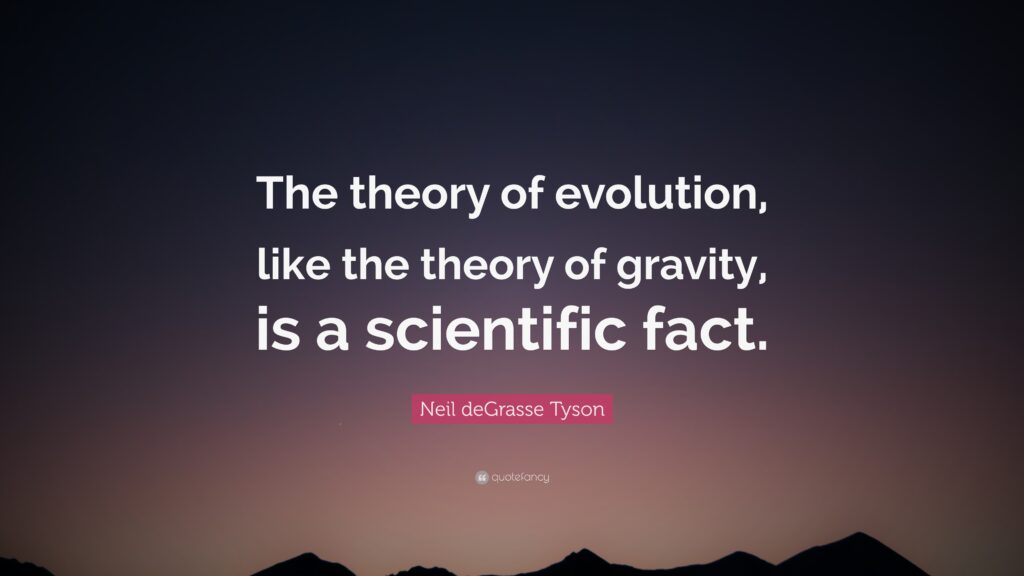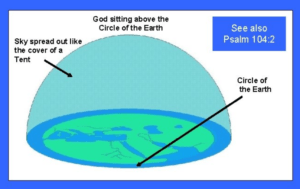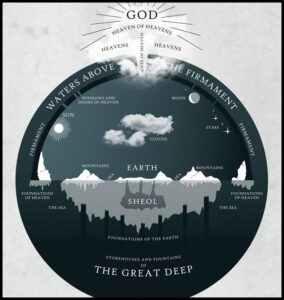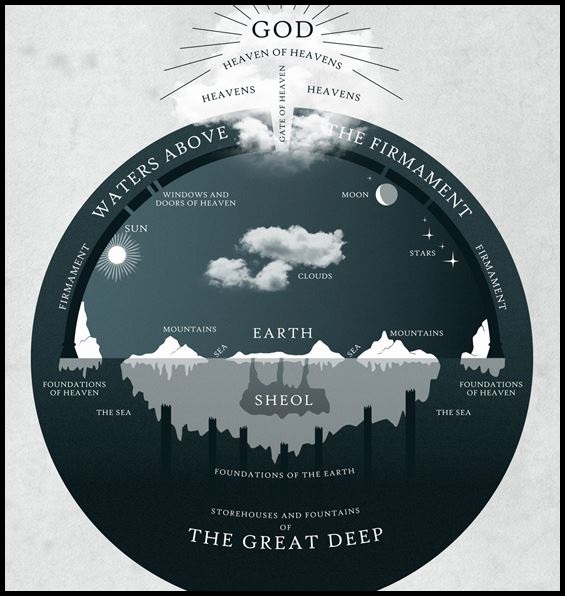I call the pagan evolutionary heliocentric view of the “universe” satanic scientism. I believe it derives from Satan and wears the clothing of acceptability because it is supposedly based on proven science, rather than religious speculation. For those brainwashed into its core beliefs since childhood, biblical cosmology seems absurd.
Sir Isaac Newton effectively created a new worldview, called scientific. From his time forward, there has been a separation of religion and science, much the same as another Enlightenment division between church and state.
The devil was hard at work in the seventeenth and eighteenth centuries laying the groundwork for casting aside the Bible and Christianity in both the scientific and political realms.
Copernicus got the ball rolling in the 16th century. The Copernican Principle, as it has come to be called, holds that mankind and the earth are small and insignificant, just the opposite of the Bible’s teaching. He was followed by Johannes Kepler, who “stole” his mentor’s (Tycho Brahe’s) research and changed his findings to say that the heliocentric view is correct and the planets have elliptical orbits. Galileo supposedly invented the telescope and verified Copernicus’ and Kepler’s findings. Newton came up with the math and name for the force that made all these theoretical motions possible – gravity. Newton was not a Christian. He denied the Trinity, the divinity of Christ, and the infallibility of the Bible. He also did extensive work in alchemy, regarded a occult practice. It is said that he was also a Master Freemason.
Below is an excellent video on this topic that I highly recommend.
When the heliocentric view first appeared, there was much opposition, especially from Protestant church leaders, such as Luther and Calvin,but over time these opponents died out and the younger generation fell for the lie. Nevertheless, much controversy continued into the early 20th century.
In 1871, George Airy conducted an experiment to show whether the earth is moving or the stars. It proved that the earth is not moving and is called Airy’s Failure because he did not support the already accepted theory that the earth is in motion orbiting the sun.
In 1887, Michelson and Morley set up a very accurately measured experiment to detect any motion of the earth. It showed that the earth is at rest. This experiment was redone many times with the same result. Below is a very short explanation. I am not sure why the apparent antisemitism is displayed, for which I apologize.
In 1913, Georges Sagnac conducted an experiment that proved that the ether exists and abolished Einstein’s theory of relativity.
Einstein sought to uphold heliocentrism by devising the theory of special relativity, doing away with the ether and declaring that all motion is relative; therefore, we cannot measure whether the earth is moving or not… but we know it is. Talk about “begging the question” (principia petitii) – attempting the use a premise as the conclusiona!
Rather than being enclosed in a solid firmament, we have been taught to believe that the sky above us is a relatively thin and fragile atmosphere held in place by a force called gravity against the unfathomable power of the vacuum of “outer space.”
Maintaining a pressurized atmosphere without a container is a physical impossibility and violates the law of entropy, but that does not seem to bother people who have been brainwashed to believe in the globe model of the earth.
When challenged as to the reality of the globe, most people appeal to the multitude of NASA’s supposed actual photographs of the spherical earth suspended in the void of space, not realizing that NASA was started by satanists for the purpose of galvanizing the deception of the spherical earth and outer space. Go to 5:42 to begin section on NASA’s history.
Robert Simmon, NASA’s “Mr. Blue Marble,” created the iconic computer generated image that was automatically installed on many iPhones. Every year new versions come out, each one showing the continents having differing sizes from the previous year. There is also clear evidence of using Photoshop.
Those who claim that they have been to “outer space” and observed first-hand the suspended spherical earth, often use the word “fragile” to describe it. I believe this is by design to conjure fear for our continued existence, which is all part of Satan’s grand scheme of deception. Those who do Satan’s bidding do not want us to know that we are safely enclosed in the firmament and watched over by our Creator.
He is the one who sits above the circle of the earth, and its inhabitants are like grasshoppers; the one who stretches out the heavens like a veil and spreads them out like a tent to live in, Isaiah 40:22 (LEB)
Genesis Chapter One’s claim that God created the firmament confronts us with an unavoidable crises of faith. Will we believe what the Bible says or not?
Did God really say that the firmament is a very real structure above the earth in which the sun, moon, and stars are located? If we choose not to believe what God says, we make the Bible out to be an archaic per-scientific fable.
Satan deceives the nations by means of sorcery. Speaking of Mystery Babylon, the Bible says:
The light of a lamp will never shine in you again. The happy voices of brides and grooms will never be heard in you again. For your merchants were the greatest in the world, and you deceived the nations with your sorceries. Revelation 18:23 (NLT)
It is important to understand that deception is empowered by satanic witchcraft, which is why it has such power to blind people to God’s truth. We ask God to release his children from the fog of satanic deception. If you wish to learn more about the occult origins of heliocentrism, I recommend the following video. I will discuss these occult origins further elsewhere.
Now that I understand and believe that Genesis Chapter One should be taken literally and that the firmament is an actual physical structure, the Bible has come alive with new insights into the nature of the world in which we live, God’s throne, heaven, and the Second Coming of Christ – the Apocalypse. I have written about this in another article.
Passages that left me “scratching my head” in the past, now make sense. Sometimes God’s truth lies right under our noses, but we just cannot see it because we have been preconditioned by devilish lies to reject truth. Every lie of the enemy is designed to alienate us from God, steal blessings from us, and transform us into fools who are easily led astray and to the slaughter. I believe the devil laughs at us every time we choose his lies above God’s Word.
The more deceived we are, the stranger the truth seems.
Jesus told the Jewish leaders who were blinded to the truth of his identity by their false expectations regarding the Messiah:
Why do you not understand My speech? Because you are not able to listen to My word. 44 You are of your father the devil, and the desires of your father you want to do. He was a murderer from the beginning, and does not stand in the truth, because there is no truth in him. When he speaks a lie, he speaks from his own resources, for he is a liar and the father of it. 45 But because I tell the truth, you do not believe Me. John 8:43–45 (NKJV)
When we embrace satanic deception, the truth seems like a lie.
The pagan Copernican heliocentric system is a lie designed to make us think that Helios (Satan) controls us (through “gravity”), instead of our being under the loving care and protection of our Creator. Because heliocentrism and the globe earth has been drummed into our heads from childhood, it seems plausible and real, but, once God opens our eyes to the truth, we will see the contradictions and absurdities of that position and wonder how we ever fell for it.
The devil specializes in presenting us with false versions of reality. He does so to condition our minds to reject God’s revealed truth, blinding us spiritually and locking us up in prisons of deception.
Satan, who is the god of this world, has blinded the minds of those who don’t believe. They are unable to see the glorious light of the Good News. They don’t understand this message about the glory of Christ, who is the exact likeness of God. 2 Corinthians 4:4 (NLT)
Not only does the devil blind unbelievers to the gospel, he also does his best to keep Christians from seeing and believing other glorious truths in the Bible.
For the weapons of our warfare are not carnal but mighty in God for pulling down strongholds, 5 casting down arguments and every high thing that exalts itself against the knowledge of God, bringing every thought into captivity to the obedience of Christ, 2 Corinthians 10:4–5 (NKJV)
Believing a lie is a kind of idolatry that influences us to put more confidence in what the devil says than we do in the Word of the One called the Truth. (John 14:6) Spiritual darkness has enveloped much of the world. Because of our enthusiastic acceptance of what is called science, we have a huge problem of spiritual blindness and deafness.
Science has become a secular religion some call scientism, whose high priests, the experts, are regarded as the source of truth.
We dare not risk being called a “science denier,” a epithet almost as devastating as being labeled a racist, hater, or homophobe.
Sadly, many of us who call ourselves Christians seem to love the “scientific” view of the universe more than we love God’s Word.
True scientists are the ones who perform empirical experiments and discover actual truth. Nicolai Tesla was a preeminent example of a true scientist. Another group of so-called scientists, such as astrophysicists, astronomers, evolutionary geologists, and paleontologists, merely observe what they study from afar and devise elaborate, fantastical, unprovable theories to try to explain our origins on the basis of godless evolution. Nevertheless, their pronouncements come to be considered confirmed facts over time.
What such “scientists” produce is more science fiction than true science.
They devise incredible (literally: unbelievable) fictions that requires vast eons of time for the universe and living beings to self-create and self-improve through random chance, violating the Second Law of Thermodynamics called Entropy.
They have fashioned a worldview, in which the Creator is superfluous, to deceive the naive . They seek to influence people away from believing in God, calling such a belief foolish and un-scientific.
They claim that people who believe in divine creation know nothing at all and hinder the forward progress of the species.
The science fiction creators arrogantly assert that their theories are facts and God’s Word is worthless.
Below is an example of this uttered by Neil deGrasse Tyson, a chief public spokesperson for modern astrophysics.

I cannot decide if he is ignorant of the definition of the word “theory” or if he assumes his listeners are. A theory cannot be a fact; otherwise, it would no longer be a theory. Anything that cannot be empirically proven must remain a theory and should never be promoted as a fact. I find it extremely revealing that Tyson connects faith in evolution with faith in gravity, and Richard Dawkins connects faith in heliocentrism with faith in evolution.
Satan’s lies interconnect and depend on one another. Evolution is the thread that holds it all together.
Contrary to current popular opinion and scientific “consensus,” evolution, universal gravitation, heliocentrism, and the globe are all mere theories that have not been and cannot be empirically proven. Every attempt to do so has failed.
Once we discard the computer generated images of a globe earth suspended in outer space which are pawned off on us by NASA and other space agencies , we are left with only empirical evidence, which all stands opposed to the science fiction of modern astrophysics.
Outer space does not exist: only what the Bible calls outer darkness.
If you wish to investigate this claim in greater depth, I have collected quite a few resources to assist you. Here is the link.
With regard to the cosmos, Satan’s scheme is to undermine our confidence in the truthfulness of the Word of God relating to the Creator and the design and nature of the heavens and earth in order to blind people to the glory of God and set them up to believe that God does not even exist, which opens us to a vast array of other lies. (Psalm 19:1, Romans 1:20)
The Big Bang – Heliocentric Theory misrepresents God’s creation and testifies that there is no God. Not surprisingly, its primary exponents are mostly atheists who mock those who believe that the Bible is literally true.
It is time for us who believe that God’s Word is completely trustworthy with regard to science and every other topic to make a stand.





 Sadly, the translators of my beloved New Living Translation, in their attempt to explain difficult concepts in modern language and terms, took the liberty to translate mayim as “water vapor.” Often they do a good job of translating idea for idea, especially when it comes to helping us understand theological terms such as justification, but in this case they did us a great disservice. Mayim means waters or a flood, not vapor. (This is why I advise people to read dynamic equivalency translations such as the NLT alongside a version that gives a literal rendering, such as the NKJV, NASB, or ESV.)
Sadly, the translators of my beloved New Living Translation, in their attempt to explain difficult concepts in modern language and terms, took the liberty to translate mayim as “water vapor.” Often they do a good job of translating idea for idea, especially when it comes to helping us understand theological terms such as justification, but in this case they did us a great disservice. Mayim means waters or a flood, not vapor. (This is why I advise people to read dynamic equivalency translations such as the NLT alongside a version that gives a literal rendering, such as the NKJV, NASB, or ESV.)  Isaiah 22:18; so, the prophet knew the difference between a circle and a ball. The image to the right could be thought us as a circle with edges as would be formed by pressing a circular seal into wax, which was a word picture uses in Job 38:14, when God himself is talking about his creation.
Isaiah 22:18; so, the prophet knew the difference between a circle and a ball. The image to the right could be thought us as a circle with edges as would be formed by pressing a circular seal into wax, which was a word picture uses in Job 38:14, when God himself is talking about his creation.
 Most people have a caricature in mind when introduced to the flat earth. It is one carefully concocted by those guarding the globe earth fantasy. We have all seen pictures like this. A flat earth floating in outer space having no edges with water overflowing it. If this is what comes to your mind, it is because you have been programmed since childhood to think this way. Every classroom has its mandatory globe. Since 1955, the movie and entertainment industry has incessantly promoted the idea that the earth is a globe. Propagandists know that if a lie is told often enough, in the minds of the hearer, it becomes the truth. This is what went on in Nazi Germany and what is going on around the world. We have been brainwashed.
Most people have a caricature in mind when introduced to the flat earth. It is one carefully concocted by those guarding the globe earth fantasy. We have all seen pictures like this. A flat earth floating in outer space having no edges with water overflowing it. If this is what comes to your mind, it is because you have been programmed since childhood to think this way. Every classroom has its mandatory globe. Since 1955, the movie and entertainment industry has incessantly promoted the idea that the earth is a globe. Propagandists know that if a lie is told often enough, in the minds of the hearer, it becomes the truth. This is what went on in Nazi Germany and what is going on around the world. We have been brainwashed. Hermeneutics
Hermeneutics